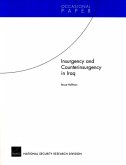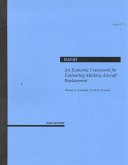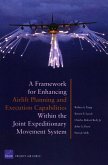The Governance of Financialization in Latin America and East Asia analyses how states in these areas have adopted different monetary, financial, and foreign exchange policies to govern financialization, which have induced varying levels of state control over financial markets.
Hinweis: Dieser Artikel kann nur an eine deutsche Lieferadresse ausgeliefert werden.
Hinweis: Dieser Artikel kann nur an eine deutsche Lieferadresse ausgeliefert werden.
"Have the governments of subordinated national capitalisms simply obeyed the structural forces powering global financialization? Using a well-calibrated set of nested comparisons, Nagel masterfully explains why Chile and South Korea regulated international financial flows while Argentina and Japan did not. At the core of this variation in divergence lies the political economy of domestic expertise on financialization, whereby state apparatuses find in financial expertise a source of agency for dodging convergence pressures and charting alternative policy pathways that have been obscured by the literature. In turn, this empowering expertise interacted with contextual factors to shape the final outcomes of financialization governance. By unpacking the mechanisms that shaped divergence in the articulation of this agency in the realm of financial governance, this superb book gives us a well-deserved break from decades of political economy scholarship theorizing the mechanisms of convergence under globalized financialization. Nagel's book is an extraordinary achievement that revalues high-quality qualitative work and takes forward the august cross-regional comparative tradition comparing Latin America and East Asia that gave us the classics of development scholarship penned by Peter Evans or Atul Kohli."
Cornel Ban, Copenhagen Business School, Denmark
"Few issues have attracted as much scholarly and public attention as the autonomy of states under conditions of financial globalisation. Yet Nagel sheds new light on the thorny relationship between states and markets by pointing to the role of expertise and its strategic use by domestic governments. This book will certainly be of interest to all those who care about the changing role of state capacity and, importantly, outside the Western world."
Manuela Moschella, Scuola Normale Superiore, Italy
"How to explain the continued divergence of national financial policies in the face of waves of financialization? Pointing to the agency of experts and the power of ideas as crucial differentiating variables, this book offers a succinct and fascinating account of the different fates of Argentina, Chile, Japan, and South Korea following the initial liberalization of the 1970s. Well researched and carefully argued, this book is a major contribution by an up-and-coming scholar."
Matthias Thiemann, Sciences Po, France
"This thought-provoking book sheds novel light on how countries frame financialisation. It highlights a key factor - expertise - that enables governments to exert domestic agency in resisting convergence in the global economy. This work is theoretically sophisticated and empirically rich - it is a required reading for anyone interested in the governance of finance and, more broadly, comparative and international political economy."
Lucia Quaglia, University of Bologna, Italy
Cornel Ban, Copenhagen Business School, Denmark
"Few issues have attracted as much scholarly and public attention as the autonomy of states under conditions of financial globalisation. Yet Nagel sheds new light on the thorny relationship between states and markets by pointing to the role of expertise and its strategic use by domestic governments. This book will certainly be of interest to all those who care about the changing role of state capacity and, importantly, outside the Western world."
Manuela Moschella, Scuola Normale Superiore, Italy
"How to explain the continued divergence of national financial policies in the face of waves of financialization? Pointing to the agency of experts and the power of ideas as crucial differentiating variables, this book offers a succinct and fascinating account of the different fates of Argentina, Chile, Japan, and South Korea following the initial liberalization of the 1970s. Well researched and carefully argued, this book is a major contribution by an up-and-coming scholar."
Matthias Thiemann, Sciences Po, France
"This thought-provoking book sheds novel light on how countries frame financialisation. It highlights a key factor - expertise - that enables governments to exert domestic agency in resisting convergence in the global economy. This work is theoretically sophisticated and empirically rich - it is a required reading for anyone interested in the governance of finance and, more broadly, comparative and international political economy."
Lucia Quaglia, University of Bologna, Italy








![What the Liberal Government Has Done for the Nation Since 1896 [microform] What the Liberal Government Has Done for the Nation Since 1896 [microform]](https://bilder.buecher.de/produkte/65/65575/65575693m.jpg)